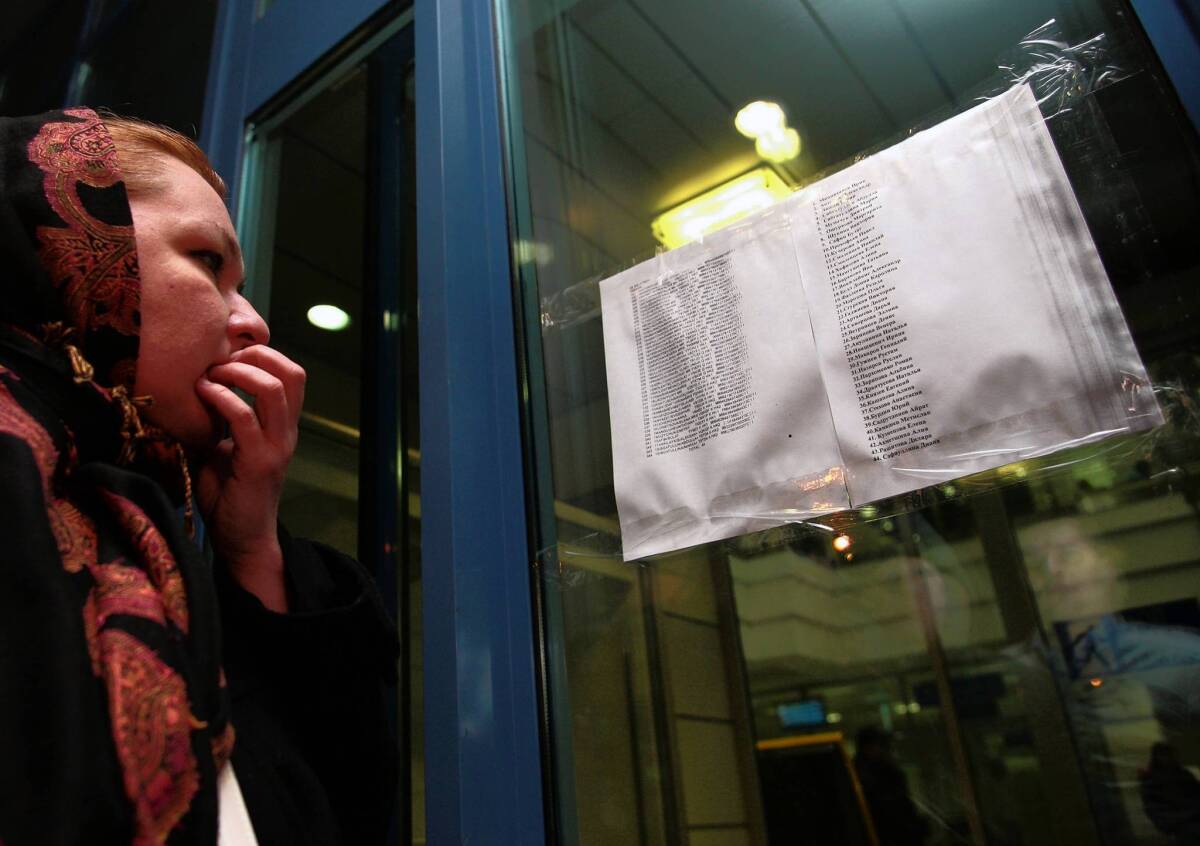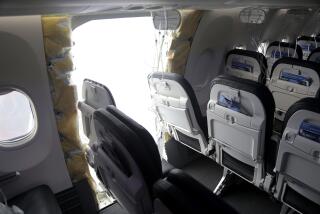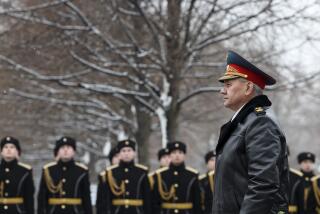Russian plane crashes in gusty weather, killing 50

MOSCOW — A Boeing 737 being operated by a regional airline crashed in gusty weather Sunday evening while attempting to land at the airport in Kazan in central Russia, killing all 50 people on board, authorities said.
The Tatarstan Airlines flight from Moscow was carrying 44 passengers and six crew members when it crashed into the airport tarmac, caught fire and broke apart, according to Sergei Izvolsky, a spokesman for Rosaviatsia, a federal air transportation agency.
The cause was not immediately known. Vladimir Markin, spokesman for the national Investigative Committee, told the Interfax news agency that authorities would look at several possibilities, “including pilot error, technical fault and unfavorable weather conditions.”
Russian television carried dramatic footage that showed flames engulfing the plane as it sat on the tarmac in the dark, firetrucks drenching it with water cannons. The crash occurred at 7:25 p.m.
Among those killed, according to the federal Emergency Situations Ministry, was Irek Minnikhanov, 24, the son of the president of Russia’s Tatarstan republic, Rustam Minnikhanov. Also reported killed was Alexander Antonov, the regional head of the Federal Security Service, the main successor agency to the Soviet KGB.
Kazan is the capital of Tatarstan.
Although Russia has had a generally poor aviation safety record, the accident in Kazan was the first serious air crash in the country this year, after two years in which more than 150 people died in multiple passenger plane crashes.
Most crashes have involved Russian-built planes. Ruben Esayan, a prominent Russian test pilot, said the U.S.-manufactured Boeing 737 is the most popular passenger plane in Russia and one of the most reliable. There were reports of wind gusts in the area at the time of the crash, although Esayan also cited the possibility of mechanical failure.
“The weather [at the airport] was close to extreme,” said Esayan, speaking to the Russia 24 television news channel. He said the weather “compelled the crew to attempt landing twice or three times. I am under the impression that there could be some technical fault on board which resulted in a rough landing.”
Interfax cited an unidentified official investigating the crash as saying the crew had reported technical problems when it was about 500 yards from the runway. A journalist who said she had flown on the same aircraft from Kazan to Moscow’s Domodedovo airport earlier in the day told Channel One state television that the landing in Moscow had been frightening because of a strong vibration during the final minutes of the flight.
Izvolsky cautioned against jumping to any conclusions.
“Now a commission is being created to investigate all the circumstances and reasons of the catastrophe,” Izvolsky said in a televised interview. “It is too early now to speak about the reasons. As soon as we discover the flight recorders we will be able to say what caused the catastrophe.”
Boeing said it would help with the investigation. “Boeing’s thoughts are with those affected by the crash,” the company said in a statement on its website.
Russian President Vladimir Putin expressed deep condolences to the relatives of those who “died in this horrible catastrophe,” presidential spokesman Dmitry Peskov told the official Itar-Tass news agency.
According to the online Aviation Safety Network, the plane was manufactured in 1989 and was purchased by Tatarstan Airlines in 2008. Before that, it had been used by five companies in France, Uganda, Brazil, Romania and Bulgaria.
Igor Varlamov, an Itar-Tass correspondent in Brazil, told Russia 24 that the same plane belly-landed in Belo Horizonte, Brazil, in December 2001, causing serious damage but no casualties.
More to Read
Start your day right
Sign up for Essential California for news, features and recommendations from the L.A. Times and beyond in your inbox six days a week.
You may occasionally receive promotional content from the Los Angeles Times.






